Here’s the officially reported coronavirus death toll through January 26. The raw data from Johns Hopkins is here.
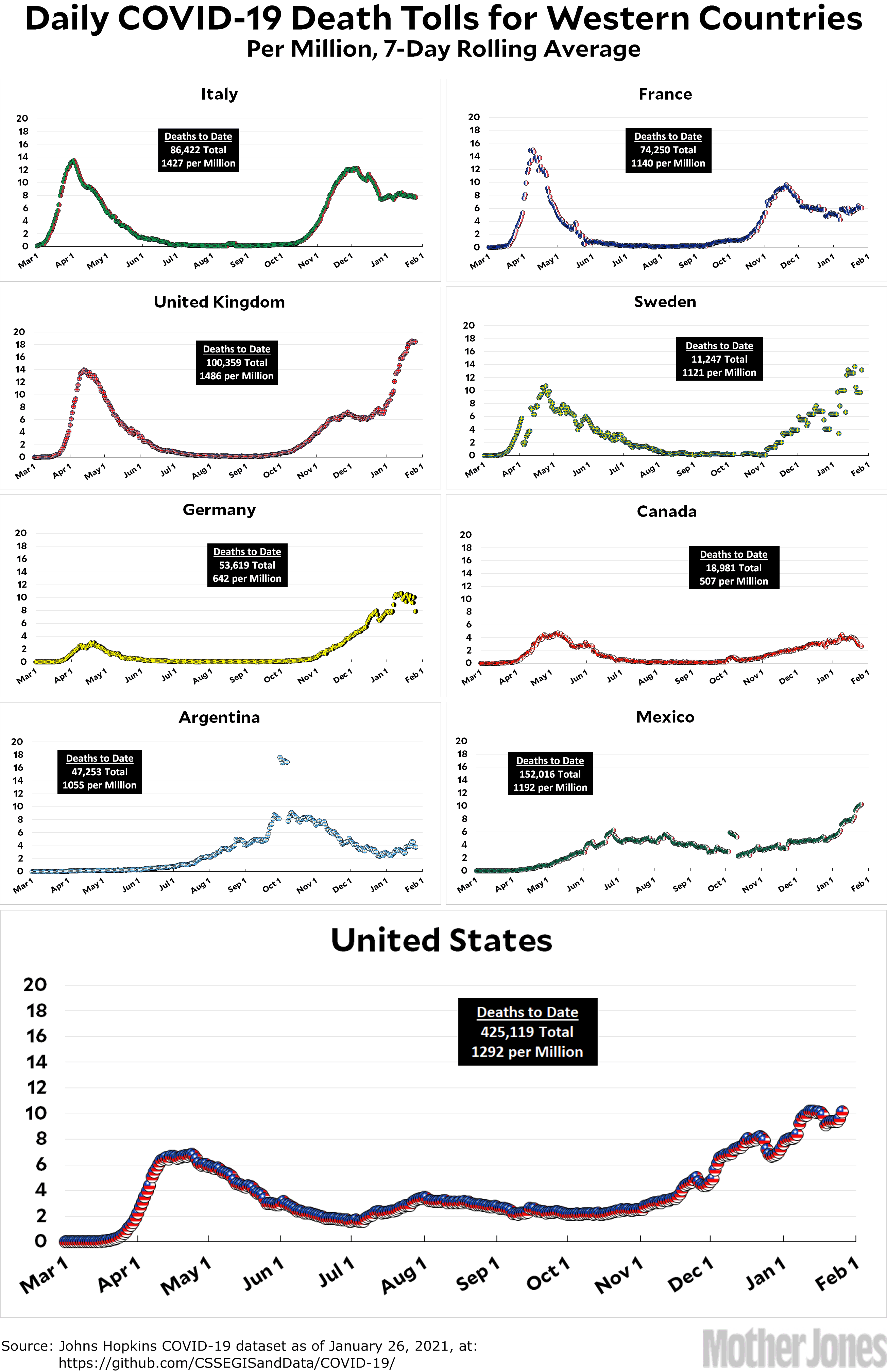

Here’s the officially reported coronavirus death toll through January 26. The raw data from Johns Hopkins is here.

Here’s a headline in Politico:
Unemployment Is Much Worse Than You Think — Here’s Why.
Anyone who wants full-time work but can only find part-time work, and those working full-time but earning too little to climb above the poverty line, should be considered functionally unemployed. I’ve begun to calculate this, which I’ve dubbed the True Rate of Unemployment. And the TRU in December wasn’t 6.7 percent — it was an alarming 25.1 percent.
This is folly. There are dozens of ways of calculating underemployment, and all of them have their uses depending on what you want to know. They’re all “true” as long as you aren’t making up the underlying data.
But that’s not why I’m writing about this. The author doesn’t include a chart showing how TRU has changed, and it turns out that’s a good thing for his thesis. Naturally, though, I clicked the link:
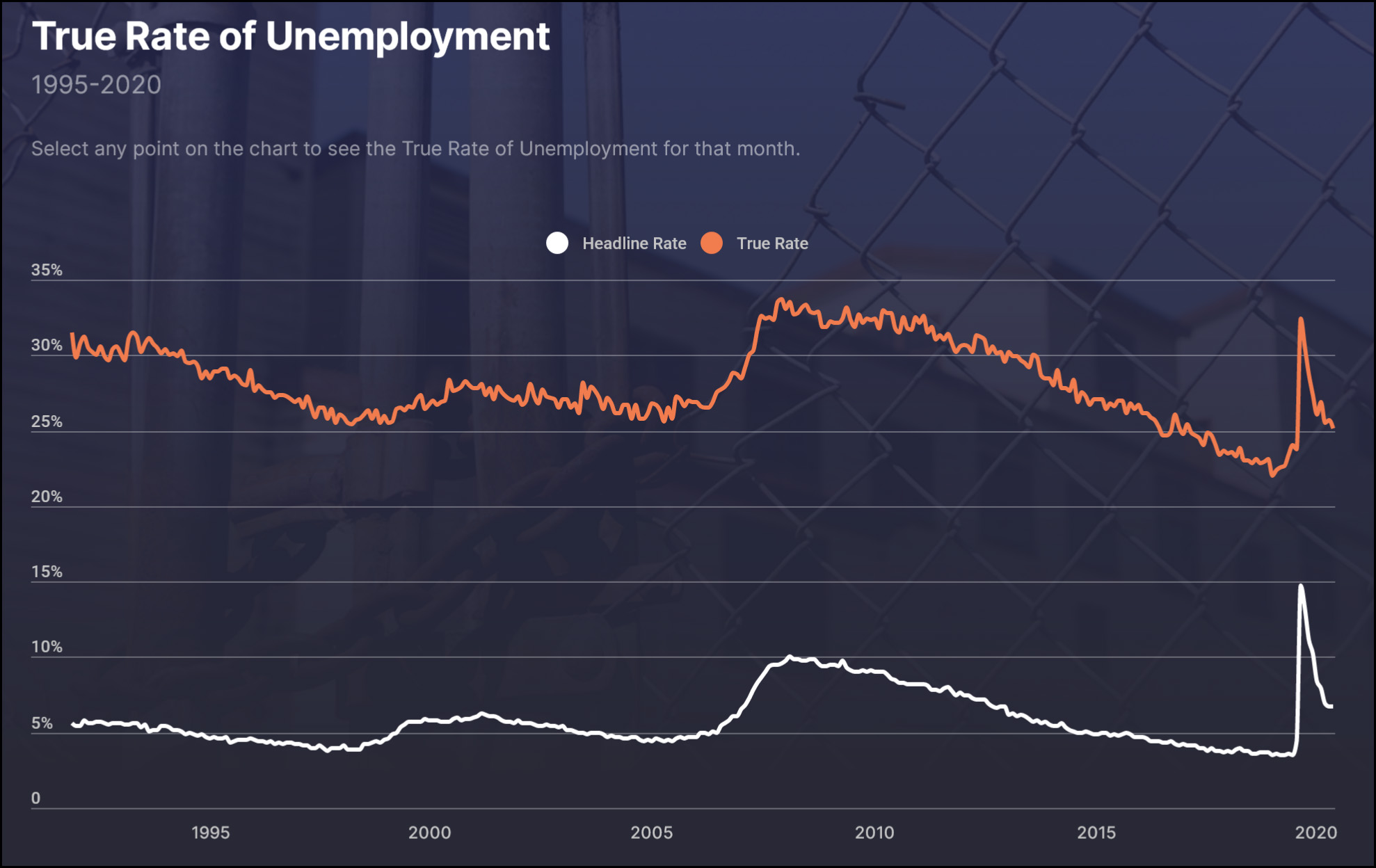
According to this chart, the evil headline rate shows that unemployment is about a point higher than it was in 1995. That seems reasonable. However, the TRU rate is five points lower than in 1995. Far from showing that unemployment is “much worse” than we think, it shows that unemployment has steadily declined. And unlike the headline rate, which shows the COVID-19 spike peaking at half again higher than the peak of the Great Recession, the TRU rate shows it spiking at a point lower than the peak of the Great Recession. In other words, unemployment is better than we think!
Bottom line: Pay no attention to this kind of stuff. You can prove anything you want by creating your own custom index of employment metrics. There’s nothing wrong with it if it helps to illustrate something interesting, but by no means do any of these things show that unemployment is “better” or “worse” than we think it is.
This is Cook’s Corner, a longtime institution at the corner of Santiago Canyon Road and Live Oak Canyon Road in north Orange County. It’s a family-friendly biker bar with an especially big draw on Sundays. I’ve never eaten there even though I pass by it frequently, and I suppose I should someday.

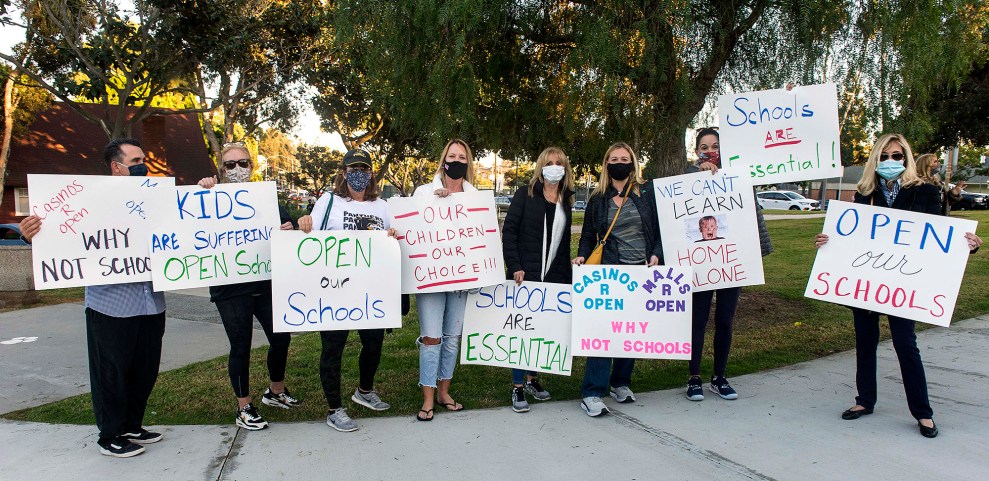
Brian Cahn/ZUMA
Schools operating in person have seen scant transmission of the coronavirus, particularly when masks and distancing are employed, but some indoor athletics have led to infections and should be curtailed if schools want to operate safely, researchers from the Centers for Disease Control and Prevention concluded in papers published Tuesday….The review, which echoes the conclusions of other researchers, comes as many schools districts continue to wrestle with whether and how to reopen schools and as President Biden makes a return to in-person learning one of his top pandemic-related priorities.
Remember, just because Donald Trump was in favor of something doesn’t automatically make it wrong. Stopped clocks and all that. It’s true that the question of school safety isn’t 100 percent certain, but the large preponderence of the evidence now points toward in-person classes being relatively safe as long as reasonable—but not onerous—precautions are taken. So ditch the indoor athletics but open up the classrooms.
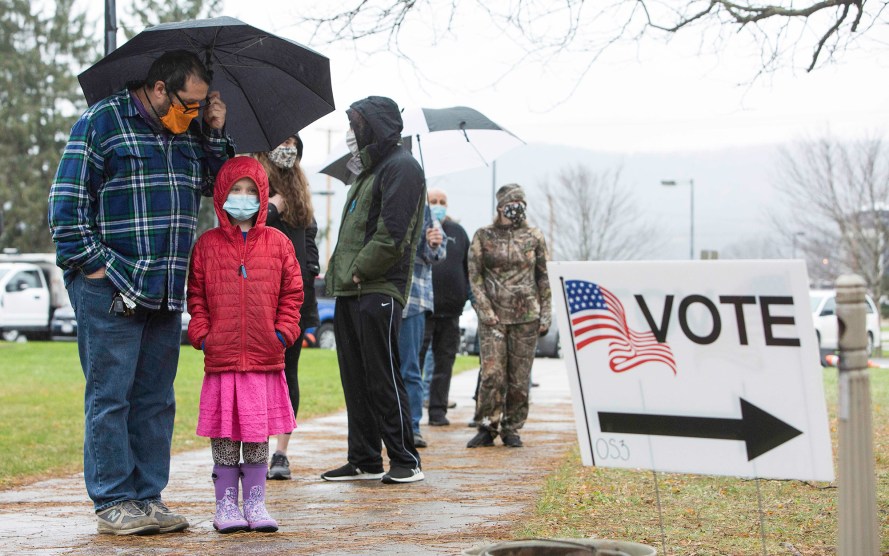
Michael Forster Rothbart/ZUMA
How is democracy faring these days? The conventional wisdom is that it’s doing pretty poorly, and not just in the US. Look at Hungary and Poland. Or Brazil. On the flip side, there’s the ascendancy and relative success of China.
I don’t want to take on the whole world today, but as far as the US is concerned I would like to persuade you that democracy is doing better than people think. Or, at the very least, give you something to mull over. Let’s take a look at the evidence:
What am I missing here? Anything truly important? My main point here is not to pretend we have no problems. It’s to prevent the hideous events of 1/6 from taking up more of your mindshare than they deserve simply because they’re fresh in our memories. As awful as it was, the insurrection was a one-off event led by a one-off president—and involving a smallish number of people. Fox News deserves all the condemnation in the world for promoting Trump’s conspiracy theories, and I wouldn’t mourn more than a few minutes if an earthquake swallowed up 1211 Sixth Avenue. But that’s a whole different problem.
¹Trump won one case, but the ruling was eventually overturned.
²With the single exception of 2016, for obvious reasons.
Here’s the officially reported coronavirus death toll through January 25. The raw data from Johns Hopkins is here.
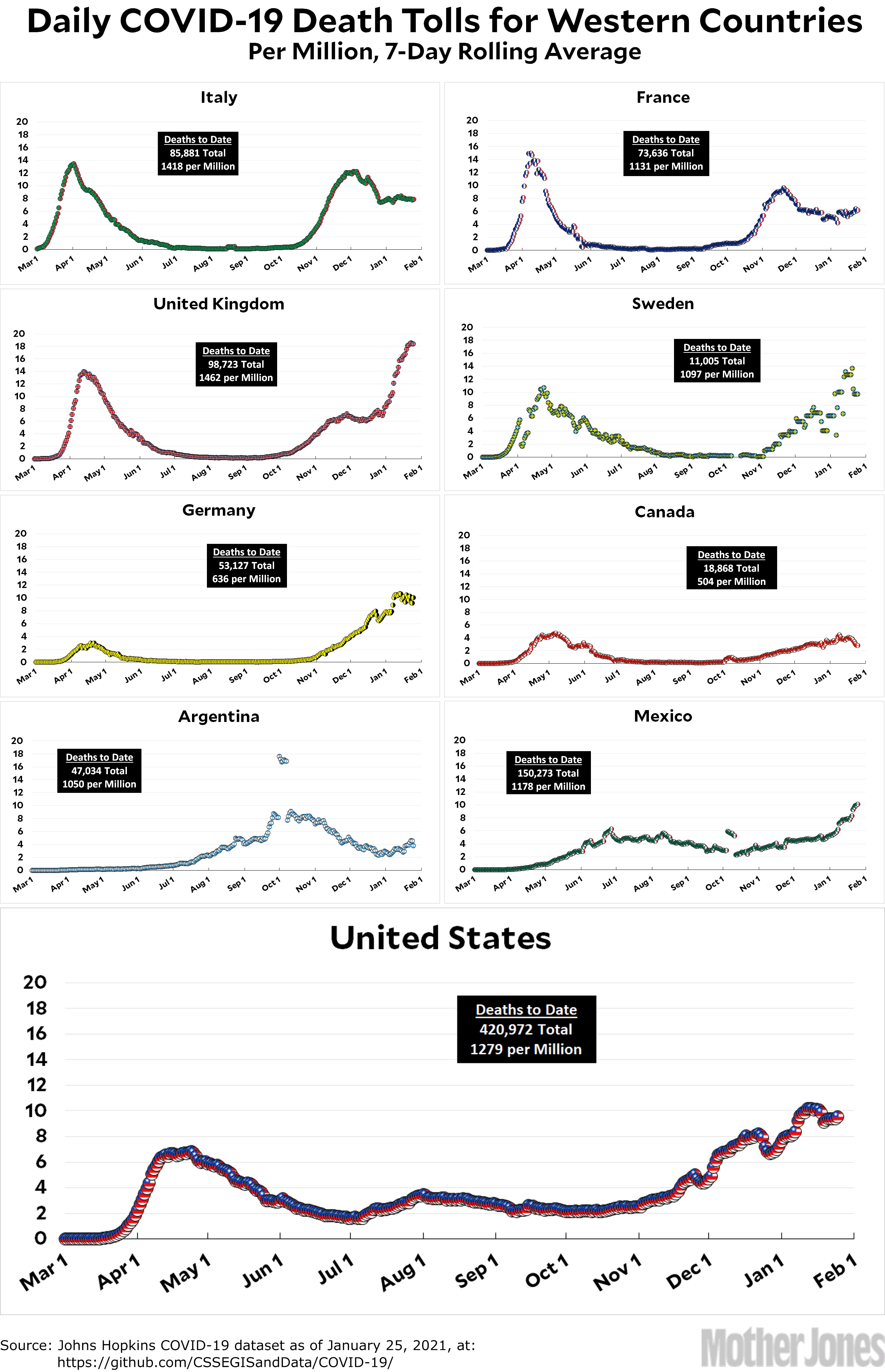
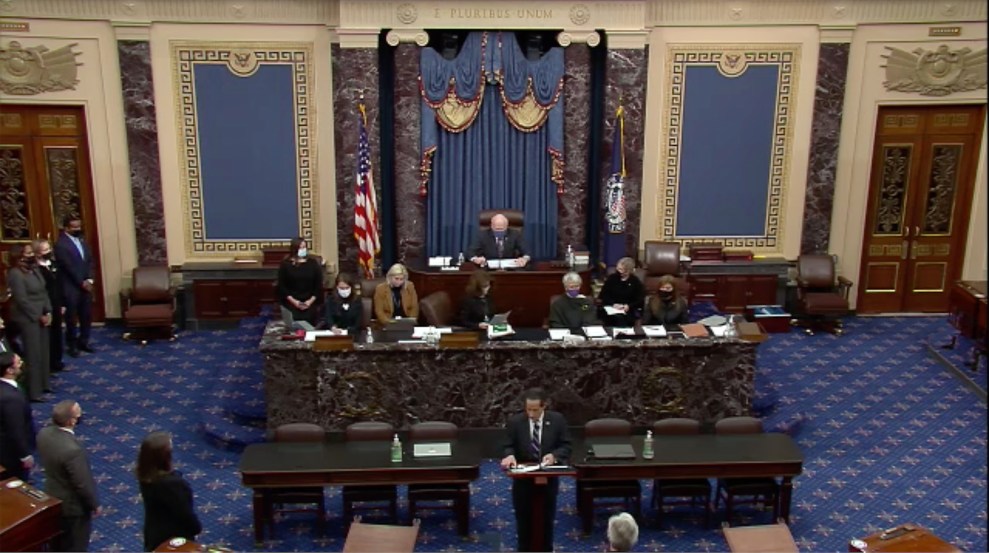
Consolidated News Photos/CNP via ZUMA Wire)
At the risk of saying the obvious, isn’t it true that the legislative filibuster has already been abolished? Sure, there hasn’t been an official announcement or anything, but everyone agrees that the majority party can pass a piece of legislation with 51 votes anytime they feel like it.¹ It just takes a simple point of order and a ruling from the vice president.
The fact that no one has done this yet is immaterial. What matters is the consensus that it can be done at will. This means the filibuster no longer exists in any meaningful way. So how about if we forget about it and move on?
¹Assuming that the Senate and the White House are controlled by the same party. But that’s been the case for all but two years of the past decade and it’s the case now.
Here is the fabulous produce box we get each week from Manassero Farms. Doesn’t it look delicious? I deliberately oversaturated the photo to give it a bit of a painterly feel, which maybe worked and maybe didn’t. Your thoughts?

It is rare for me to disagree with Ezra Klein quite so vigorously, but this is just wrong, wrong, wrong:
Democrats mocked [Donald Trump’s] “I alone can fix it” message for its braggadocio and feared its authoritarianism, but they did not take seriously the deep soil in which it was rooted: The American system of governance is leaving too many Americans to despair and misery, too many problems unsolved, too many people disillusioned. It is captured by corporations and paralyzed by archaic rules. It is failing, and too many Democrats treat its failures as regrettable inevitabilities rather than a true crisis.
Political parties that are out of power normally have a keen interest in making things sound terrible. After all, they have to promise to fix things in order to get the votes to get back in power, but nobody is interested in fixing things unless they’re convinced they need fixing. So Republicans shout about the deficit and moral decay because those are well-known ways of scaring people into voting against Democrats. Democrats insist that the middle class is dying and Medicare is under assault, because those are well-known ways of scaring people into voting against Republicans.
This is all normal—but it can become abnormal if both parties, along with pretty much every pundit, is insisting that the country is going to hell. To the average voter, it seems right now as if the deficit is skyrocketing, moral decay is rampant, the middle class is dying, and Medicare is under assault. And a hundred other things. Nothing is going well.
This is just flatly wrong. Obviously the COVID-19 pandemic has put everyone in a bad mood to begin with, but our national despair far predates that. So what’s going on?
I’m not going to bother putting up all the charts again, but the facts simply don’t bear out the doomsday thinking. Incomes are up. Crime is down. Kids are being educated. Racial resentment has been easing. Views on morality are about the same as always.¹ Health care costs are becoming more manageable. Interest payments on the national debt are low. The internet has provided everyone with huge new opportunities for entertainment and education and social togetherness. Electric cars are becoming more common and hands-free driving is no more than a few years away. And just last year, we created a vaccine for a brand new virus in less than a year. Less than a year!
Problems? Sure, of course. Climate change is the big one. Poverty is still with us, though it’s declined substantially over the past few decades. Racial justice still has a long way to go. Too many Americans continue to have no health coverage.
But are these problems worse than they were 30 years ago? Or 40? With the exception of climate change, no. They just aren’t. In practically every sense, the United States is better off today than it was in 1980. It’s also better off than just about any other country on earth. And we are not any less happy than we’ve ever been.
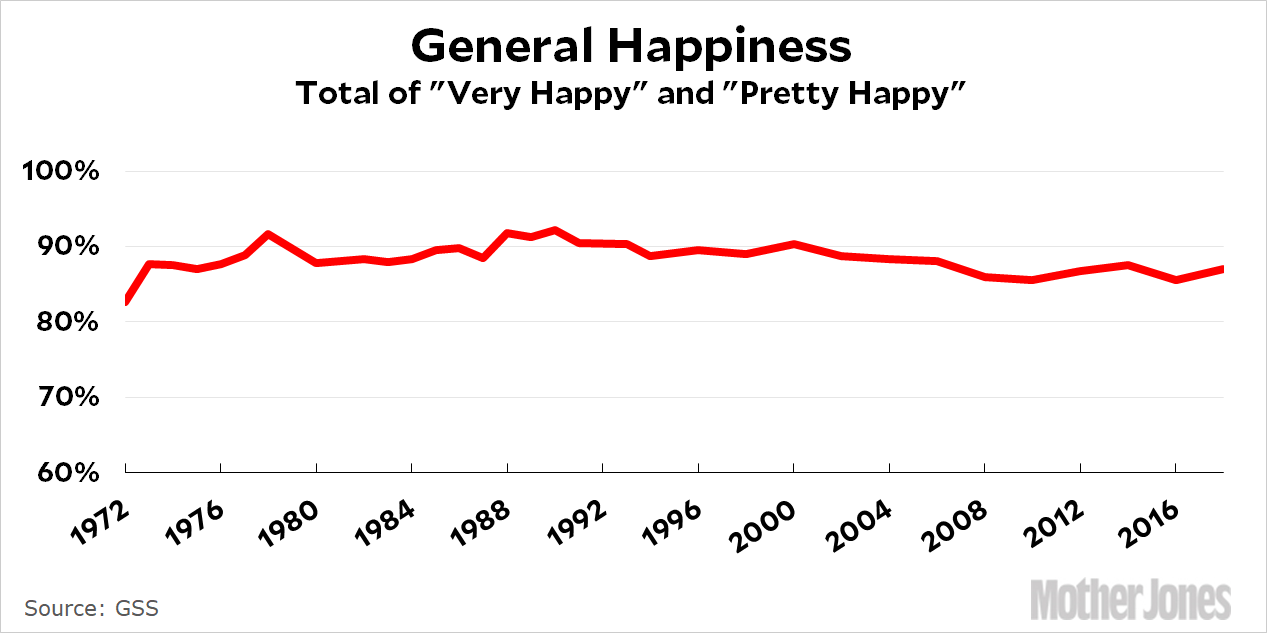
And yet nobody believes that we’re doing pretty well even though the evidence is all but irrefutable. Why? I believe the answer is not so much that we’re dissatisfied as that we’re scared. Practically everybody has a vested interest in scaring the hell out of us these days. Fox News is the obvious example on the right, an institution that’s done such a good job of scaring its viewers that two-thirds of Republicans believe that Joe Biden is a socialist, and a substantial portion are so panicked they were willing to invade the Capitol to prevent him from becoming president. The left has nothing to equal this, but after four years of Donald Trump many of us are nonetheless convinced that incomes are plummeting, the poor are being hammered, and racial justice is going nowhere. None of this is grounded in data.
I don’t know what to do about this. Gridlock in Washington obviously contributes to our feelings of gloom, but that’s not due to any fundamental failing of American society. It’s due to the fact that we’ve been politically split 50-50 for the past two decades and nothing has come along to change that. This makes both sides irritable, but ironically it’s a sign that there’s nothing hugely wrong with the country. If there were, one party or the other would be able to take advantage of it and gain power for a sustained period. Still, even if this is basically a sign of stability, it’s also true that decades of trench warfare with nothing much to show for it is pretty dispiriting.
Even though I don’t know how to fix all this, I can think of one thing that would help: we could all stop insisting that the country is about to spiral into doom. On a purely material level, it’s not happening and there’s no evidence it’s about to happen. And I don’t know about you, but I can’t think of another country that’s better set to face the future than ours.
In other words, America isn’t failing, and the widespread fear that it is, especially among Republicans, isn’t rooted in deep soil. Just the opposite. It’s based on little more than demagoguery. That doesn’t mean we have no problems to solve. It just means we’re doing a better job of solving them than most people think.
¹By a large margin, Americans rate our current moral values as poor. But Americans have always rated current moral values as poor. Nothing about this has changed in the past few decades.
Sometimes raw data can point you in two different directions at once. Take poverty, for example. CBPP has the details here, but the basic story is that over the past half century we’ve spent a lot of money on social welfare benefits for the poor and it’s made a big difference:
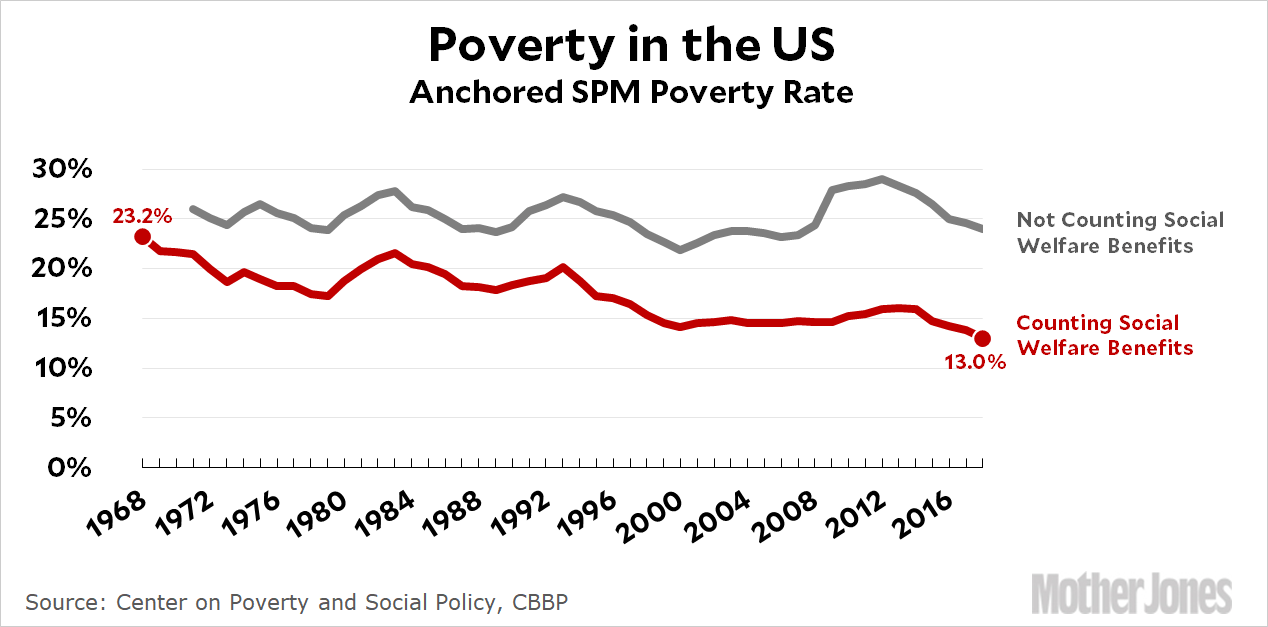
Social welfare programs have cut the poverty rate nearly in half, and that’s true across the board. It’s true for children, for the elderly, and for the working-age population.
On the other hand, if you look at a consistent definition of poverty among our peer countries, things don’t look so good:
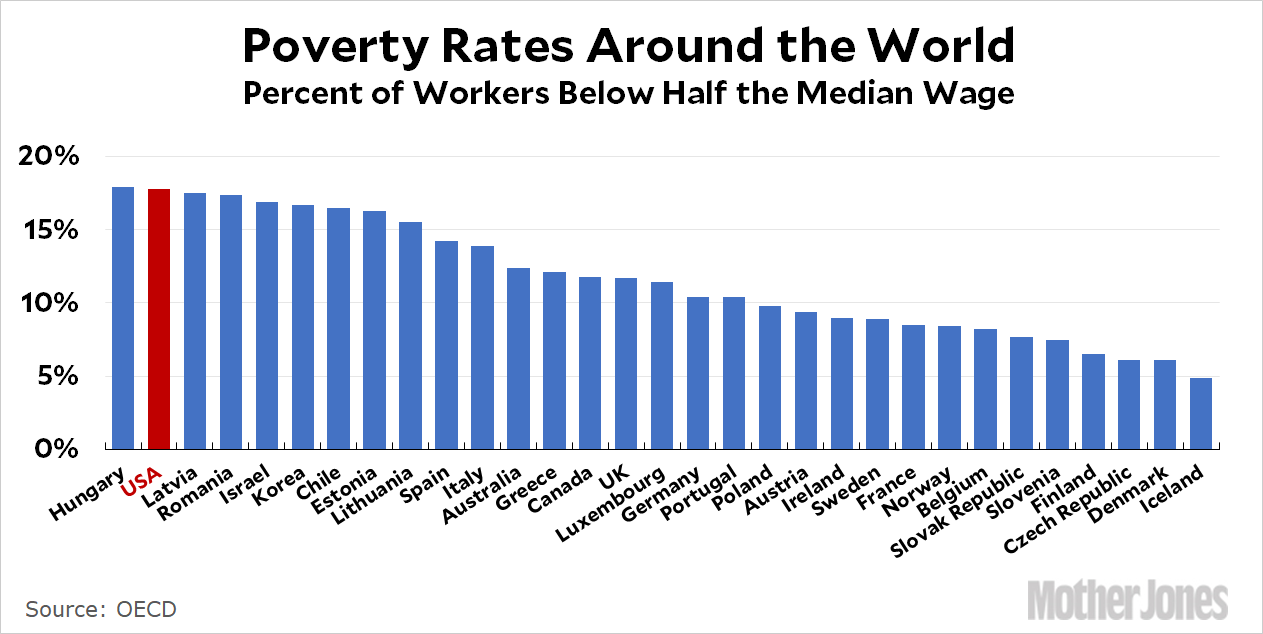
Both of these charts are true. There’s nothing sneaky about either one. But taken together, do they mean we’ve done pretty well addressing poverty? Or that we’ve done disgracefully badly? It’s your call.